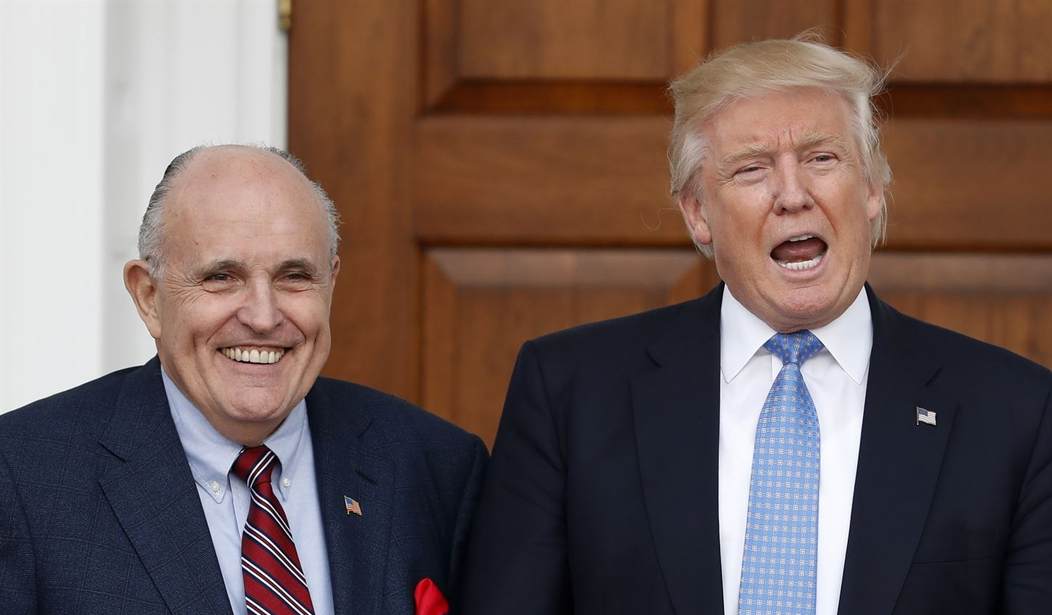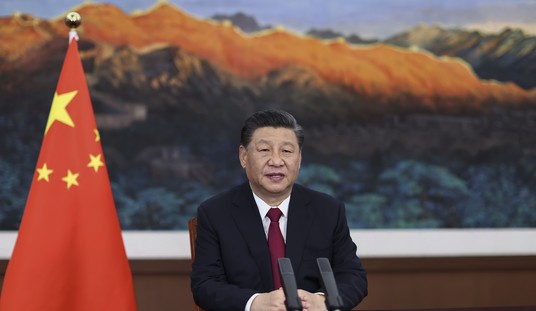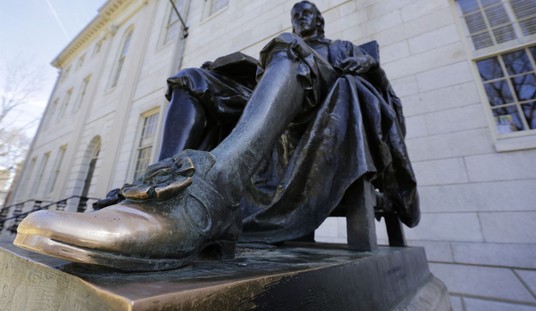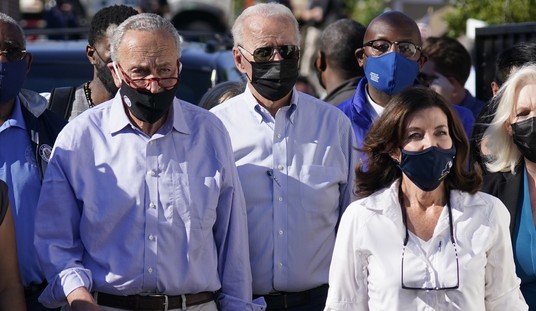First, a disclaimer: I did not listen to the argument as it took place, and I do not think a transcript has been published yet. So I do not know the actual content on the hearing, only what was reported in a couple of “live blog” efforts, both of which were anti-Trump partisans so I didn’t expect them to have anything favorable to say about the presentation on behalf of the Plaintiffs in the case.
But I was worried when I saw that Rudy Giuliani had sought to make an appearance in the case, and I feared he would take it upon himself to try and argue these technical issues of law that were the basis for the motions to dismiss — a lack of “standing” to make a Fourteenth Amendment “equal protection” claim, and an assertion that the court should observe the “abstention doctrine” and wait for state courts to resolve disputed issues of state laws in the case.
Based on the reporting, which I have no reason to disbelieve, my fears were realized as Rudy’s presentation — as described — might have fit in on a segment of Hannity or Laura Ingraham, but it was completely inappropriate and lacking in making the argument that the case as pled should survive and the plaintiffs be allowed to pursue discovery.
The problem is that as the complaint is drafted, there are “standing” issues based on prior decisions in election cases in the Third Circuit — and there would be similar problems in just about every other circuit as well. Generally speaking, voters who voted for the losing candidate in an election do not have “standing” to ask the Court to throw out the results. Two of the plaintiffs here are voters — but they didn’t vote in any of the seven counties that are defendants.
I think the Trump campaign has a decent standing argument, but Rudy was not prepared to argue the legal reason why that was true.
But since I didn’t listen, and I don’t want to put complete faith in biased commentators who reported on the hearing as it happened, I’m not going to parse further what Rudy did or didn’t say.
But the one issue that is fundamentally true in federal court litigation is that the district court judge is going to ask specific questions about the facts and the law that applies to the case, and the attorney needs to be prepared to answer those questions directly. Rudy was not prepared to do that — I don’t think it was possible for him to be prepared to do that. He should have left the oral argument to another attorney who was more familiar with election law and equal protection claims in general, and the Pennsylvania election law in particular.
I have seen comments on Twitter excusing this because “The case is going to the Supreme Court so today’s hearing didn’t matter.” Well, if only that were true.
For this case to get to the Supreme Court — and it may well get there — it will need to follow a very tight and precise schedule. That means there can be no missteps along the way.
Appeals Courts — including the Supreme Court — do not generally take up matters without a factual record. You don’t call witnesses and take testimony in the Appeals Court or the Supreme Court. So if you want the Supreme Court to consider what witnesses have to say about what happened in the seven Pennsylvania Counties that have been named as defendants, that needs to happen in the district court where today’s hearing took place.
The ONLY goal today was to keep this case alive long enough to have the evidentiary hearing on the preliminary injunction that was scheduled to take place later in the week. Witnesses would have testified and been cross-examined under oath. But Judge Brann canceled that hearing today — which is not a good sign.
The argument today needed to be good enough to convince Brann to let that factual record be established BEFORE he dismisses the case on standing grounds — which I’m pretty sure he is going to do. That is actually what the Trump side wants because that pushes the case quicker out of the trial court and into the appeals courts, and an effort can be made to seek SCOTUS review immediately. This would be rare, but possible given that the clock is running on the inauguration date for the next president.
But, the case going forward to those other courts needs to have a factual record established as to WHAT HAPPENED in those Pennsylvania counties with regard to illegal pre-canvassing of ballots, and the use of that information to “cure” invalid ballots. At this point, the Trump Campaign has no hard factual data on how many ballots were involved. It needs to get that information from the defendants, and it is going to need the Court’s processes — subpoenas, an evidentiary hearing, and discovery — to get that information.
That is why the case needed to survive today’s hearing on the motions to dismiss. That is why the absolute best possible litigator prepared for today’s hearing needed to argue the case, and Rudy was not that person.
Judge Brann knows this as well as anyone. He knows this case will be leaving his docket soon, and it will go to the Third Circuit and maybe SCOTUS. He wants to give those courts an adequate record to work with. He took the motions today “under advisement”. He canceled the evidentiary hearing, but he can put that back on the calendar for a later date if necessary. He has not yet ruled on the discovery requests made by the Trump campaign. Without getting the right to collect that data, the Trump campaign will have no factual evidence to take to the appeals courts.
My guess is that Judge Brann will grant the motion to dismiss. The Plaintiffs will file a notice of appeal in the Third Circuit that same day, and ask for an emergency stay preventing the Pennsylvania Secretary of State from certifying the election. At that point, the Supreme Court may or may not take notice of the case.
The longer the Supreme Court takes to decide what to do with the case pending before it now — involving the decision of the Pennsylvania Supreme Court extending the date for receiving mail-in ballots — the more I think they are watching the developments of other litigation in Pennsylvania with the idea of taking all the cases at one time and disposing of them together in one decision. The Pennsylvania Supreme Court decided another case today involving the limitations placed on election monitors in Philadelphia. That will likely be appealed to SCOTUS and would be another case they could resolve.
But the chances of the case heard today being taken by the Court without going through the Third Circuit Court of Appeals improves greatly with the development of a good factual record in the district court. That required good lawyering by attorneys who understood the legal issues and could answer Judge Brann’s questions about why he should allow the case to continue while some basic discovery is done.
The reason the argument on “standing” for either voters or candidates was important was that only the Supreme Court can issue a decision that changes the current law on the subject. Judge Brann must rule in a way that he believes higher courts have directed that he rule in this kind of case with this same kind of litigant. The Third Circuit will face the same issue if they hear the case.
But the Supreme Court can change the law if it chooses to. That is why the record of the case and the record of today’s motion was important. The argument needed to be made as to why a losing candidate should be allowed to challenge what he claims were fraudulent election processes used by state officials to the detriment of his campaign. Judge Brann could not, on his own, change the law in that regard, but the argument needed to be made to him in an appropriate fashion.
And that is not a Fox News panel discussion on “pervasive fraud” which seemed to be Rudy’s theme for the day.














Join the conversation as a VIP Member